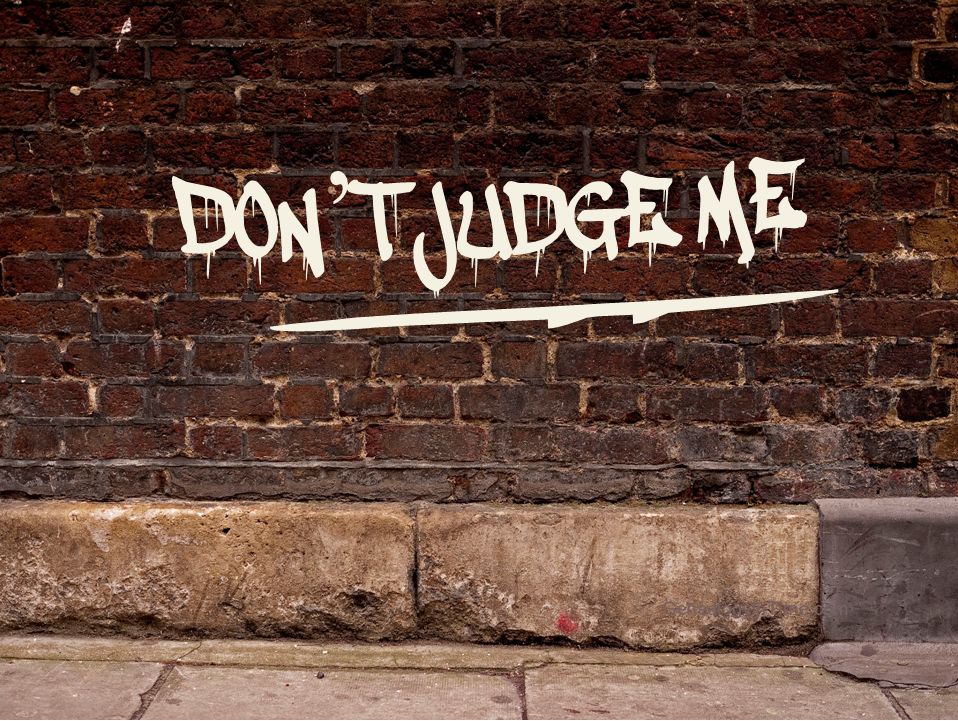 In the previous sections of this study we saw that judging is simply considering something and making a decision about it. When Jesus issued the command to “judge not,” He did not mean to ignore sin. Sometimes it is necessary to discern whether something is wrong or right. However, it must be done in the correct manner.
In the previous sections of this study we saw that judging is simply considering something and making a decision about it. When Jesus issued the command to “judge not,” He did not mean to ignore sin. Sometimes it is necessary to discern whether something is wrong or right. However, it must be done in the correct manner.
As recorded in the seventh chapter of John, Jesus was teaching at the Feast of Tabernacles. In the middle of His monologue, He stopped and asked the people who were listening why they wanted to kill Him. After exchanging quizzical looks with each other, they responded with, “You have a demon. Who is seeking to kill You?”
Jesus ignored their denial and went on to explain that they wanted to kill Him simply because He had healed a man on the Sabbath. Most likely He was referring to the incident reported in the fifth chapter of John, where He healed the man at the pool of Bethesda. It was not that they took issue with Jesus healing this guy, but that He did it on the Sabbath. A big no-no.
Then it was Jesus’ turn to act amazed. “If a man receives circumcision on the Sabbath, so that the law of Moses should not be broken, are you angry with Me because I made a man completely well on the Sabbath?” (John 7:23 NKJV).
Apparently it was acceptable to circumcise a baby boy on the Sabbath, but to heal a permanently lame man was out of bounds.
According to the Law, a Jewish male was to be circumcised when he was eight days old (Leviticus 12:3). Of course, the law of averages dictates that some child is bound to be eight days old on the Sabbath. What do you do then? Someone is going to have to break the Sabbath prohibition against work and perform the circumcision. Of course, the Jews knew that circumcision was important, so the one doing it was not guilty.
So Jesus says, “You think it is ok to break the Sabbath to take care of one part of a man, but I simply spoke a word and made a man completely whole on the Sabbath and I am not excused?”
Isn’t that a double standard?
Then Jesus gives some advice: “How about if you use a little wisdom in evaluating what is right and wrong?”
That’s my interpretation of what He said. Here are His exact words:
Do not judge according to appearance, but judge with righteous judgment. (John 7:24 NKJV)
Instead of basing your judgments (decisions about what is right and wrong) on your own personal preferences or traditions, use “righteous judgment.”
But what does that mean?
For something to be righteous, it has to be pleasing to God and impartial. Of course, it has to square with all of the revealed commands of God.
So, here is my definition of righteous judgment: an impartial decision made after a serious evaluation of the facts in light of all of God’s commands.
You will probably never be faced with the question of healing vs. circumcision on the Sabbath, but you will be faced with many instances that may require you to make a decision. How do you know if you are judging righteously or not?
To determine if an action warrants a confrontation, there are four questions that we should ask. These are the conditions for judging.
- Is it clear disobedience to God’s commands?
- Is it true?
- Am I also guilty?
- What is my purpose?
Let’s break down the first condition, beginning with a focus on “clear disobedience.” We’ll look at the others later.
Is it clear disobedience to God’s commands?
Jesus said to not judge according to appearance, but to use “righteous judgment.” An “appearance” is what something looks like on the outside. The New Living Translation paraphrases Jesus’ words as “Look beneath the surface so you can judge correctly.”
In other words, do not judge too quickly. Sometimes you just don’t have all the details!
He who answers a matter before he hears it, it is folly and shame to him. (Proverbs 18:13 NKJV)
Now, let’s look at this condition with an emphasis on “God’s commands.”
Is it clear disobedience to God’s commands?
We don’t cut the Pharisees much slack because of their traditionalism, but is it possible that we often do the same thing?
We claim that the Bible is our source of truth. Do we really believe it and act like it, or do we place a higher emphasis on our own opinions?
This is an issue that Paul had to confront with the church in Rome.
Receive one who is weak in the faith, but not to disputes over doubtful things. (Romans 14:1 NKJV)
We all have our hobby horses. Apparently the believers in Rome did, too. The problem was that for these matters there were no direct commandments from God.
For one believes he may eat all things, but he who is weak eats only vegetables. Let not him who eats despise him who does not eat, and let not him who does not eat judge him who eats; for God has received him. Who are you to judge another’s servant? To his own master he stands or falls. Indeed, he will be made to stand, for God is able to make him stand. One person esteems one day above another; another esteems every day alike. Let each be fully convinced in his own mind. (Romans 14:2-5 NKJV)
The point that Paul is making is that there are some things that are not clear in the Scriptures and we should not argue about them. For the Romans, the issue was which types of food could be eaten and which days to elevate above others.
Those who understood their freedom in Christ, according to Paul, should not look down on those who held themselves to a higher standard. On the other hand, those who were stricter should not judge those who enjoyed more freedom.
In verse ten, Paul reminds the Romans that “we shall all stand before the judgment seat of Christ.” He will make the final decision about who is right and who is wrong. Until then, I say with Paul, “Let each be fully convinced in his own mind” about those areas where there is no specific biblical revelation.
Click here to visit the previous article, “What Goes Around . . .”
Click here to visit the next article, “God’s Rules or Mine? (The Sabbath)”
Click here to visit the article “Conditions for Judging (Part II)”

